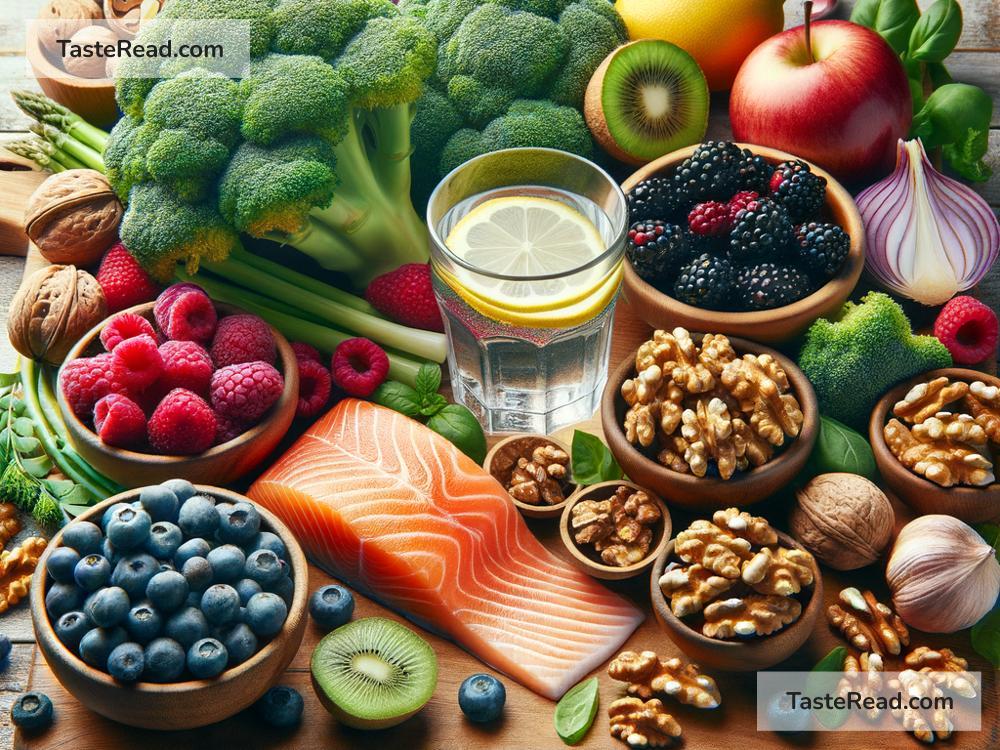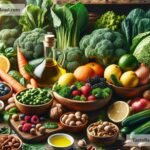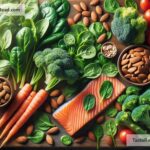Foods That Reduce the Risk of Colorectal Cancer
Colorectal cancer is one of the most common types of cancer in the world. It affects the colon and rectum, which are parts of the digestive system. While it can happen to anyone, certain lifestyle factors and dietary choices can increase or decrease the risk of developing this disease.
The good news is that research has shown that the food we eat plays a big role in preventing colorectal cancer. By including certain foods in your diet, you can improve your overall health and reduce your risk of this life-threatening illness. Let’s take a closer look at foods that can help protect you.
1. Fruits and Vegetables
Fruits and vegetables are rich in vitamins, minerals, fiber, and antioxidants, which are essential for keeping your body healthy. Antioxidants, such as vitamin C and carotenoids, help fight harmful molecules in your body that may damage cells and lead to cancer.
- Leafy greens like spinach, kale, and Swiss chard contain fiber and folate, nutrients that are known to reduce colorectal cancer risk.
- Cruciferous vegetables such as broccoli, cauliflower, and Brussels sprouts have special compounds called glucosinolates. These compounds may inhibit the growth of cancer cells.
- Colorful fruits such as oranges, berries, and apples provide a wide range of nutrients and antioxidants to support your body in fighting cancer.
Aim to fill half your plate with fruits and vegetables at every meal. They not only reduce cancer risk but also benefit heart health, weight management, and your immune system.
2. Whole Grains
Whole grains like brown rice, quinoa, oatmeal, and whole-wheat bread are packed with dietary fiber. Fiber plays a key role in keeping your digestive system healthy by promoting regular bowel movements and removing waste from the colon.
Studies have shown that high-fiber diets are linked to a lower risk of colorectal cancer. This is because fiber helps reduce inflammation in the colon and speeds up the elimination of potentially harmful substances.
Try replacing refined grains, like white bread and white rice, with whole grains to boost your intake of fiber and other nutrients.
3. Legumes
Legumes, including beans, lentils, chickpeas, and peas, are excellent sources of fiber, protein, and important nutrients like folate and iron. They are also rich in resistant starch, a type of carbohydrate that acts as fuel for healthy bacteria in the gut.
Healthy gut bacteria produce short-chain fatty acids as they digest resistant starch. These fatty acids reduce inflammation and may help lower the risk of colorectal cancer.
Add legumes to soups, salads, and stews, or enjoy them as a side dish. They are affordable, versatile, and a great substitute for less-healthy options.
4. Healthy Fats
Not all fats are bad for you! Healthy fats, such as omega-3 fatty acids found in foods like fatty fish (salmon, mackerel, sardines), walnuts, and flaxseeds, may help reduce inflammation in the body. Chronic inflammation is linked to a higher risk of cancer, including colorectal cancer.
These fats also boost heart and brain health, making them a valuable addition to your diet.
Try incorporating fish into your meals two to three times per week, and snack on nuts or seeds for an easy way to get more healthy fats.
5. Dairy Products
Calcium and vitamin D, found in dairy products such as milk, yogurt, and cheese, are key nutrients for maintaining strong bones and promoting healthy cell growth. Research suggests that calcium may play a role in lowering the risk of colorectal cancer by preventing the growth of abnormal cells in the colon lining.
If you’re lactose intolerant or don’t eat dairy, you can get calcium from fortified plant-based milk, tofu, almonds, and dark leafy greens.
6. Green Tea
Green tea is a popular drink not only for its soothing taste but also for its health benefits. It contains powerful antioxidants called catechins, which have been shown to prevent cancer cells from growing and spreading.
Replace sugary soft drinks with green tea to enjoy its cancer-fighting properties and boost your overall health. You can drink it hot or cold, depending on your preference.
Foods to Avoid
Just as there are foods that can reduce the risk of colorectal cancer, there are also foods that may increase the risk. It’s best to limit or avoid:
- Processed meats like bacon, sausage, and hot dogs: These have been linked to a higher risk of colorectal cancer.
- Red meat: Eating too much beef, pork, or lamb may increase the risk of colorectal cancer.
- Excessive alcohol: Drinking alcohol regularly can damage your cells and increase cancer risk.
- Sugary and refined foods: These offer little to no nutritional value and may contribute to inflammation.
Final Thoughts
What you eat matters more than you might think when it comes to preventing colorectal cancer. By focusing on a diet rich in fruits, vegetables, whole grains, legumes, and healthy fats, you can protect your body and improve your overall health.
Remember, no single food can prevent cancer on its own. It’s the combination of healthy choices and an active lifestyle that makes a difference. Eating a balanced diet and staying active can help lower your risk of colorectal cancer while keeping your body strong.
Take control of your health one plate at a time, starting today!


